Discover how an app can revolutionize the way you manage your home bar inventory, ensuring you never run out of your favorite drink again.
Why keeping tra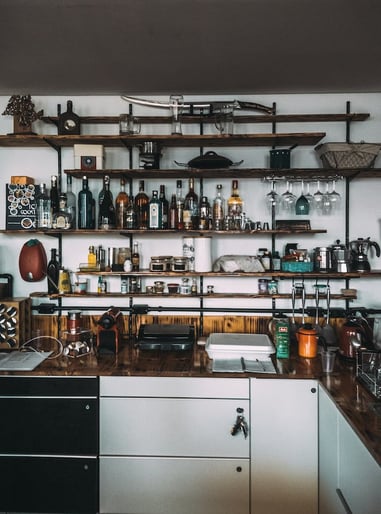 ck of your home bar inventory is important
ck of your home bar inventory is important
Keeping track of your home bar inventory is crucial for several reasons. First and foremost, it allows you to know exactly what you have on hand, preventing you from running out of your favorite drinks when you're in the mood for a cocktail. By keeping a record of your inventory, you can easily plan your shopping trips and ensure you always have the necessary ingredients to make your favorite drinks.
Additionally, tracking your home bar inventory helps you avoid wasting money on duplicate purchases. When you know what you already have, you can avoid buying unnecessary items and save money in the process. It also allows you to keep track of the expiration dates of your beverages, ensuring you use them before they go bad.
Furthermore, by keeping tabs on your home bar inventory, you can easily calculate the cost of your drinks and manage your budget effectively. This can be particularly useful if you enjoy entertaining guests at home and want to keep track of your expenses.
Overall, keeping track of your home bar inventory is important for organization, cost-saving, and ensuring you always have the ingredients you need to enjoy your favorite drinks.
How an app can simplify the process
Managing your home bar inventory can be a time-consuming and tedious task, but with the help of an app, it becomes much easier and more efficient. An app designed specifically for home bar inventory management can simplify the process in several ways.
Firstly, an app can provide a user-friendly interface where you can easily input and update your inventory. Instead of manually writing down every item you have, you can simply scan the barcode or search for the product in the app's database. This saves you time and eliminates the risk of human error.
Secondly, an app can automatically track your purchases and consumption. By linking the app to your receipts or manually inputting your purchases, the app can update your inventory in real-time, making it easier to keep track of what you have and what you need to restock.
Additionally, a home bar inventory app can provide useful features such as recipe suggestions based on the ingredients you have, shopping list generation, and cocktail mixing tips. These features can enhance your overall home bar experience and make it more enjoyable.
In summary, an app can simplify the process of managing your home bar inventory by providing a user-friendly interface, automated tracking, and additional features to enhance your home bar experience.
Features to look for in a home bar inventory app
When choosing a home bar inventory app, there are several key features to consider that can make your inventory management experience even better.
Firstly, look for an app that has a comprehensive database of products. This ensures that you can easily find and add your favorite drinks to your inventory without having to manually input all the details. The app should also allow you to add custom items if needed.
Secondly, consider an app that offers barcode scanning functionality. This feature makes it incredibly convenient to add new items to your inventory by simply scanning the barcode on the product. It saves time and reduces the chances of errors.
Another important feature to look for is the ability to set expiration reminders. This ensures that you use your beverages before they expire and helps you avoid wasting money on spoiled products.
Furthermore, a good home bar inventory app should provide detailed analytics and reports. This allows you to track your consumption patterns, identify popular drinks, and make informed purchasing decisions.
Lastly, consider an app that offers integration with other platforms or devices. For example, if you use a smart home system, it would be beneficial to have an app that can sync with your smart devices and provide you with real-time updates on your inventory.
By considering these features, you can find a home bar inventory app that meets your specific needs and simplifies your inventory management process.
Benefits of using a home bar inventory app
Using a home bar inventory app offers numerous benefits that can greatly enhance your home bar experience.
Firstly, it allows you to have a clear overview of your inventory at all times. With just a few taps on your smartphone, you can see what drinks you have available and easily plan your next cocktail.
Secondly, a home bar inventory app helps you stay organized. Instead of having bottles scattered around your home, the app provides a centralized location where you can keep track of your drinks. This not only makes your home bar area neater but also ensures you can find the specific drink you're looking for quickly.
Additionally, using an app to manage your home bar inventory helps you save money by preventing duplicate purchases. With a clear record of what you already have, you can avoid buying the same bottle twice and focus on trying new drinks instead.
Moreover, a home bar inventory app can inspire creativity and experimentation. Many apps offer recipe suggestions based on the ingredients you have, allowing you to discover new cocktails and expand your mixology skills.
Lastly, using an app to manage your home bar inventory provides you with valuable insights into your drinking habits and preferences. By analyzing the data provided by the app, you can identify which drinks you consume the most, which ones you rarely touch, and adjust your purchasing decisions accordingly.
In summary, using a home bar inventory app brings organization, cost-saving, creativity, and valuable insights to your home bar experience.
Tips for effectively managing your home bar inventory with the app
To effectively manage your home bar inventory with the app, consider the following tips:
1. Regularly update your inventory: Make it a habit to update your inventory whenever you purchase new drinks or finish existing ones. This ensures that your records are always accurate and up to date.
2. Set reminders for expiration dates: Take advantage of the app's expiration reminders feature to ensure you use your beverages before they go bad. This helps you avoid wasting money on spoiled products.
3. Plan your shopping trips: Use the app to create a shopping list based on the items you need to restock. This saves you time and prevents impulse purchases.
4. Explore recipe suggestions: Take advantage of the app's recipe suggestions feature to discover new cocktails and make the most of the ingredients you have. This allows you to experiment and expand your mixology skills.
5. Analyze your consumption patterns: Regularly review the analytics and reports provided by the app to identify your drinking habits and preferences. This can help you make informed purchasing decisions and adjust your inventory accordingly.
By following these tips, you can effectively manage your home bar inventory and make the most out of your app's features.
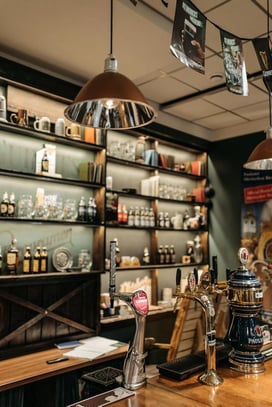

 ck of your home bar inventory is important
ck of your home bar inventory is important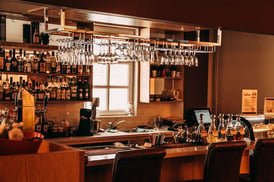
 Money losers in a bar come in many forms, and you will want to check your financial records carefully to make sure that you are not being affected by one of these:
Money losers in a bar come in many forms, and you will want to check your financial records carefully to make sure that you are not being affected by one of these: Many bar operators like to keep their patrons entertained with a variety of eclectic means and don't mind spending a few dollars to do so. In fact, major sporting venues have been employing these kinds of halftime entertainments for years and finding great results. If your bar can offer unique and appealing entertainment, chances are very good that you will have plenty of clientele. Better yet, if your bar develops a reputation for providing great entertainment, customers will always be dropping by your bar to look at your latest entertainment options. Consider the following:
Many bar operators like to keep their patrons entertained with a variety of eclectic means and don't mind spending a few dollars to do so. In fact, major sporting venues have been employing these kinds of halftime entertainments for years and finding great results. If your bar can offer unique and appealing entertainment, chances are very good that you will have plenty of clientele. Better yet, if your bar develops a reputation for providing great entertainment, customers will always be dropping by your bar to look at your latest entertainment options. Consider the following: Coin-operated entertainment machines are a great source of extra revenue for a bar. The eclectic nature of most bars means that coin-ops of all styles, sizes, and functions can fit perfectly within your surrounds while adding to the fun and flavor of your establishment. The profits that coin-ops generate can be huge; they can also run a lot deeper than just the money inserted into the machines.
Coin-operated entertainment machines are a great source of extra revenue for a bar. The eclectic nature of most bars means that coin-ops of all styles, sizes, and functions can fit perfectly within your surrounds while adding to the fun and flavor of your establishment. The profits that coin-ops generate can be huge; they can also run a lot deeper than just the money inserted into the machines. The trusty pinball machine has been around since the late 1800s yet still uses the same formula as the pinball machines of old. Lights, sound effects, the bounce of the ball, the sound of the flipper, and the lure of a high score. With a little smart thinking, your pinball machines can earn you a lot of money.
The trusty pinball machine has been around since the late 1800s yet still uses the same formula as the pinball machines of old. Lights, sound effects, the bounce of the ball, the sound of the flipper, and the lure of a high score. With a little smart thinking, your pinball machines can earn you a lot of money. New technology. Look at what's available on the market today. The dartboard has received a technological boost. Coin-operated dart systems not only keep score for your patrons, but they also bring in a new source of revenue. Turnkey systems can be purchased or brought in under a profit-sharing deal.
New technology. Look at what's available on the market today. The dartboard has received a technological boost. Coin-operated dart systems not only keep score for your patrons, but they also bring in a new source of revenue. Turnkey systems can be purchased or brought in under a profit-sharing deal.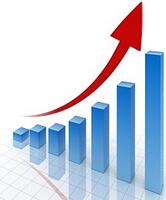
 At the end of each month, it is important to close out all expenses and sales and balance all accounts. This process ensures that finances are being monitored and helps prevent financial problems down the line. It also lets you, the bar manager, see whether the bar is making a profit or not and what changes (if any) need to be made to operations.
At the end of each month, it is important to close out all expenses and sales and balance all accounts. This process ensures that finances are being monitored and helps prevent financial problems down the line. It also lets you, the bar manager, see whether the bar is making a profit or not and what changes (if any) need to be made to operations.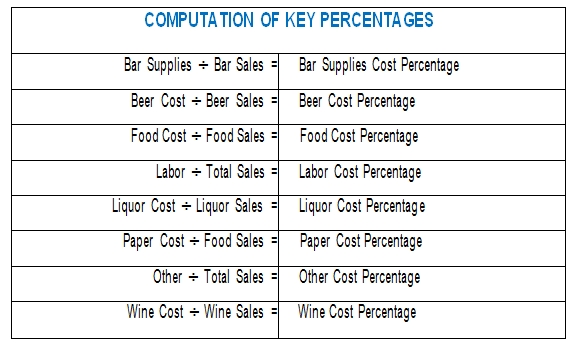
 New bar managers, especially those who have never owned a business before, often find the process of caring for money matters quite daunting. There are a number of ways to make the process easier:
New bar managers, especially those who have never owned a business before, often find the process of caring for money matters quite daunting. There are a number of ways to make the process easier: The savvy bar manager knows how to maximize profits and get the most sales possible without sacrificing ethics or drink quality. You can do the same if you follow a few simple tips. One simple way to maximize profits is by offering promotions or discounts. The small cost factor involved in initiating these promotions make them a good promotional vehicle.
The savvy bar manager knows how to maximize profits and get the most sales possible without sacrificing ethics or drink quality. You can do the same if you follow a few simple tips. One simple way to maximize profits is by offering promotions or discounts. The small cost factor involved in initiating these promotions make them a good promotional vehicle. Another way to maximize spending, and your bar's profits, is with bar tabs. Bar tabs make it easier for customers to spend without hassle, encouraging multiple orders of drinks. To allow bar tabs or not is a policy that can be debated from both sides with sound reasoning. Many bars and restaurants have been victimized by customers who walk out and do not pay their tabs. A policy of no bar tabs will alleviate the initial problem, but it will certainly be inconvenient—and possibly insulting—to some customers.
Another way to maximize spending, and your bar's profits, is with bar tabs. Bar tabs make it easier for customers to spend without hassle, encouraging multiple orders of drinks. To allow bar tabs or not is a policy that can be debated from both sides with sound reasoning. Many bars and restaurants have been victimized by customers who walk out and do not pay their tabs. A policy of no bar tabs will alleviate the initial problem, but it will certainly be inconvenient—and possibly insulting—to some customers.
